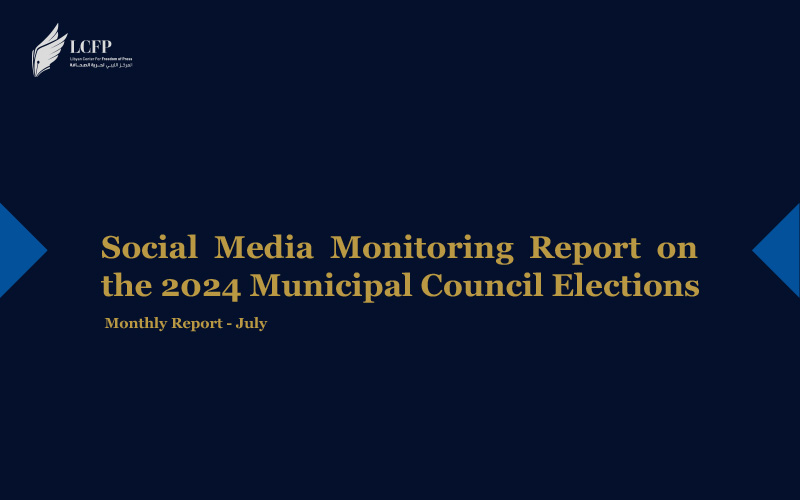
Monitoring social media around municipal council elections (July)
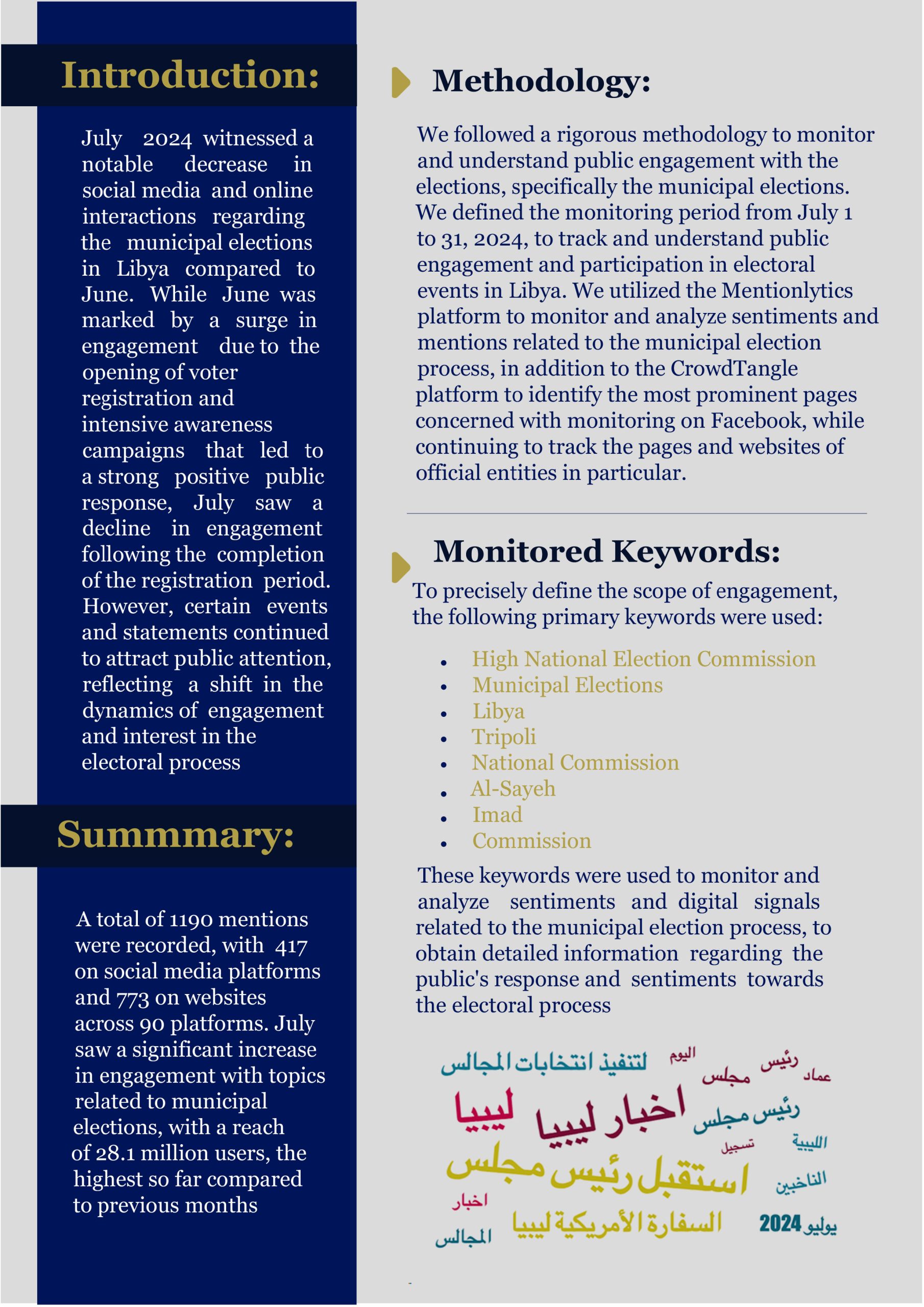
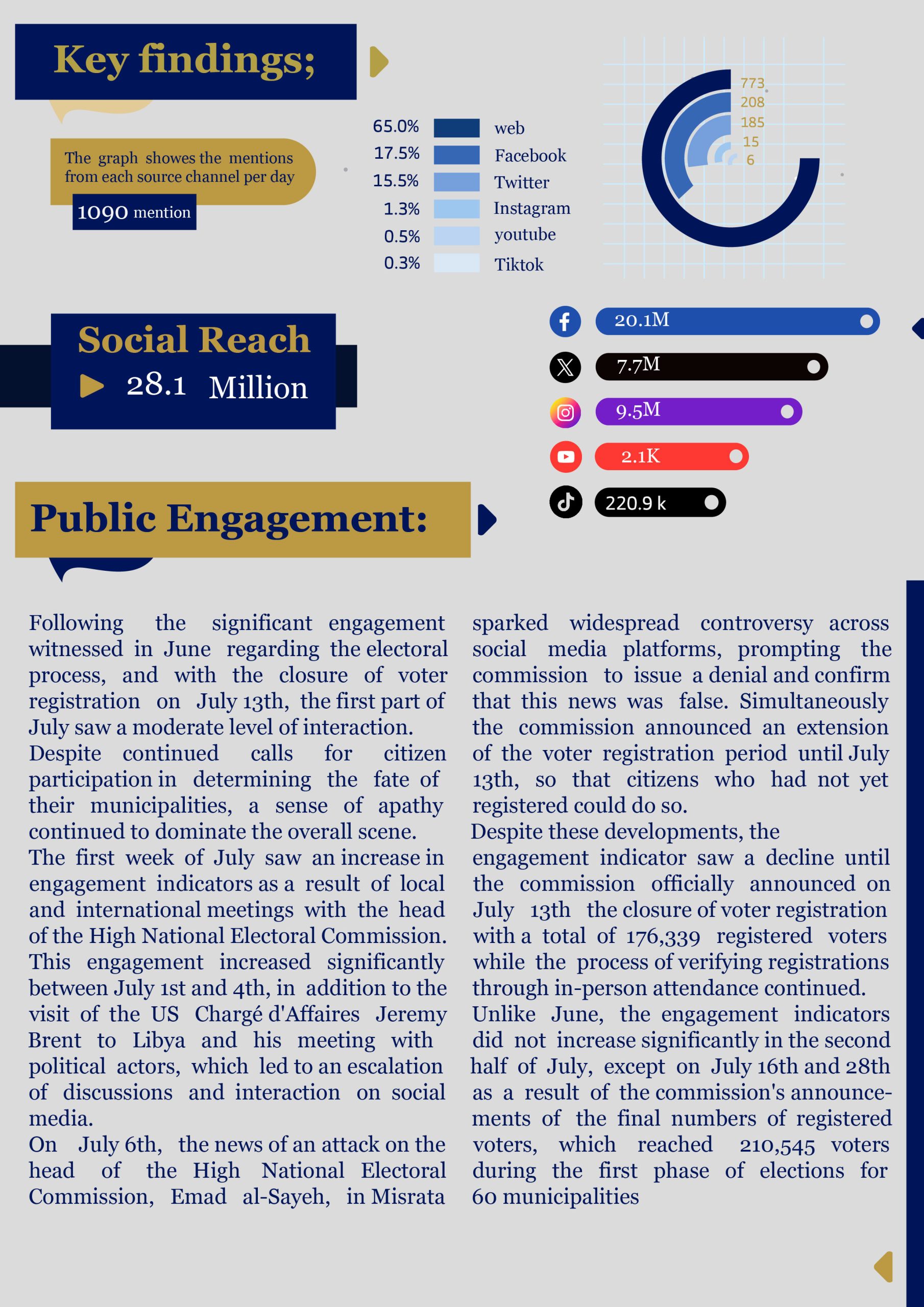
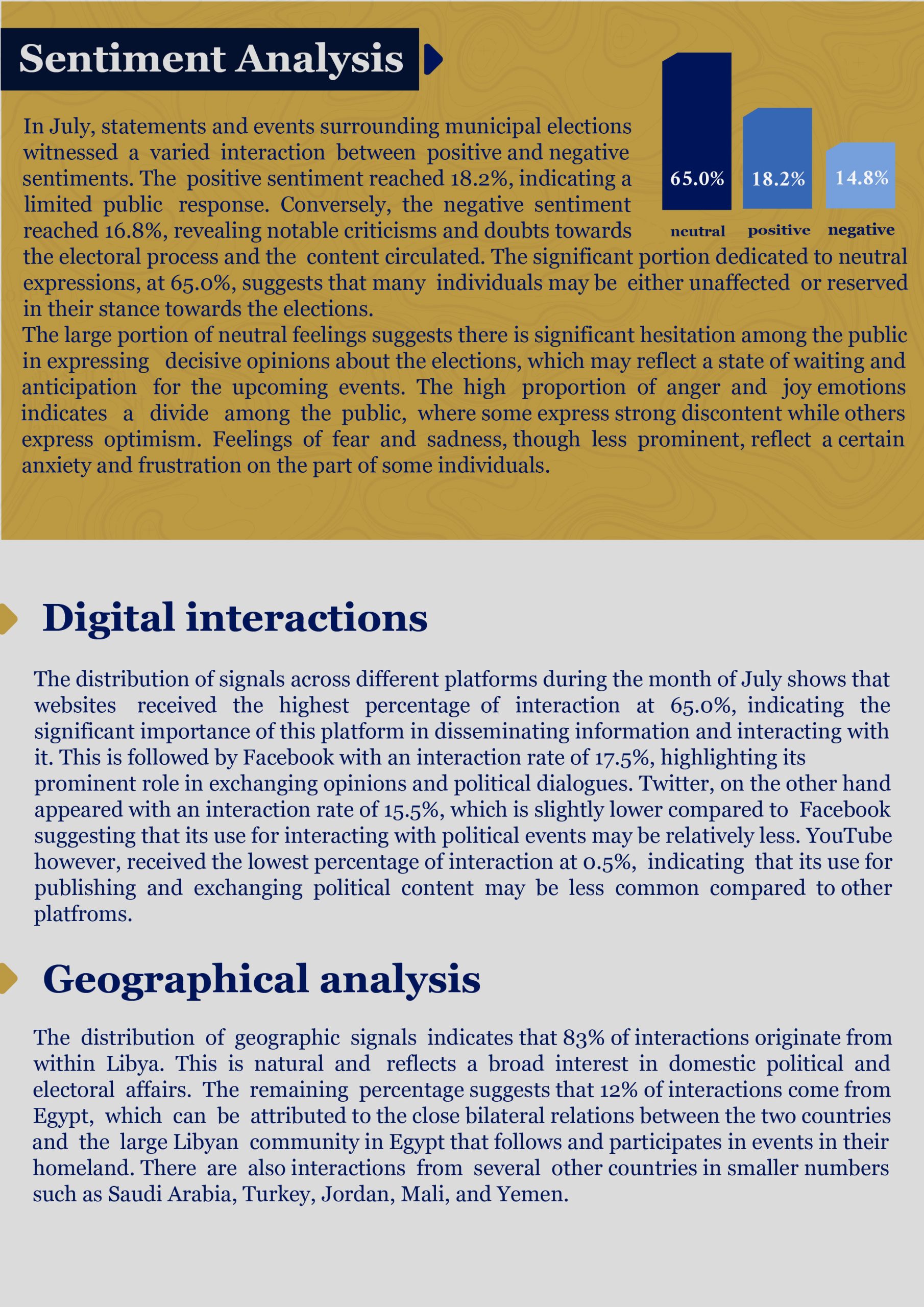
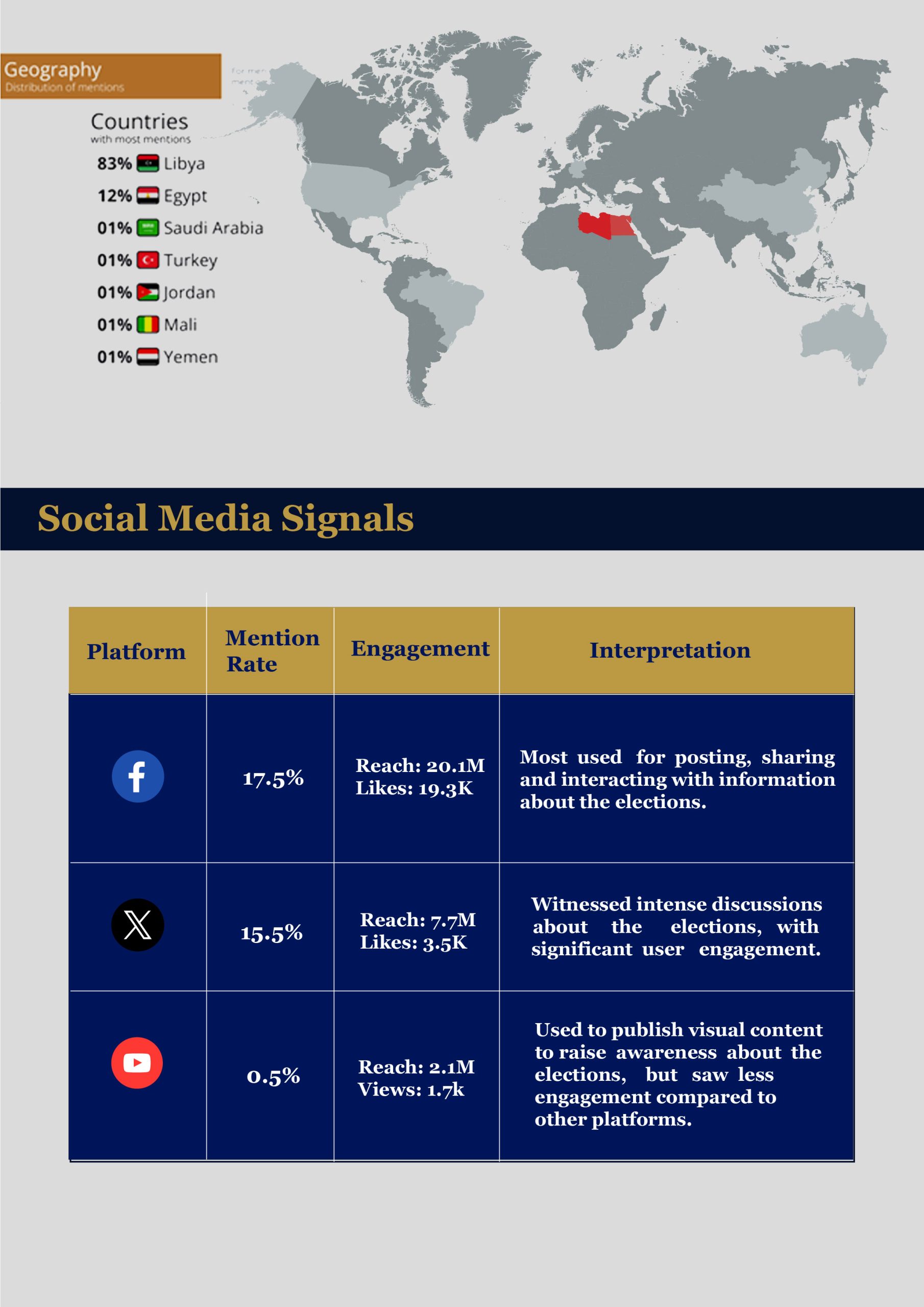
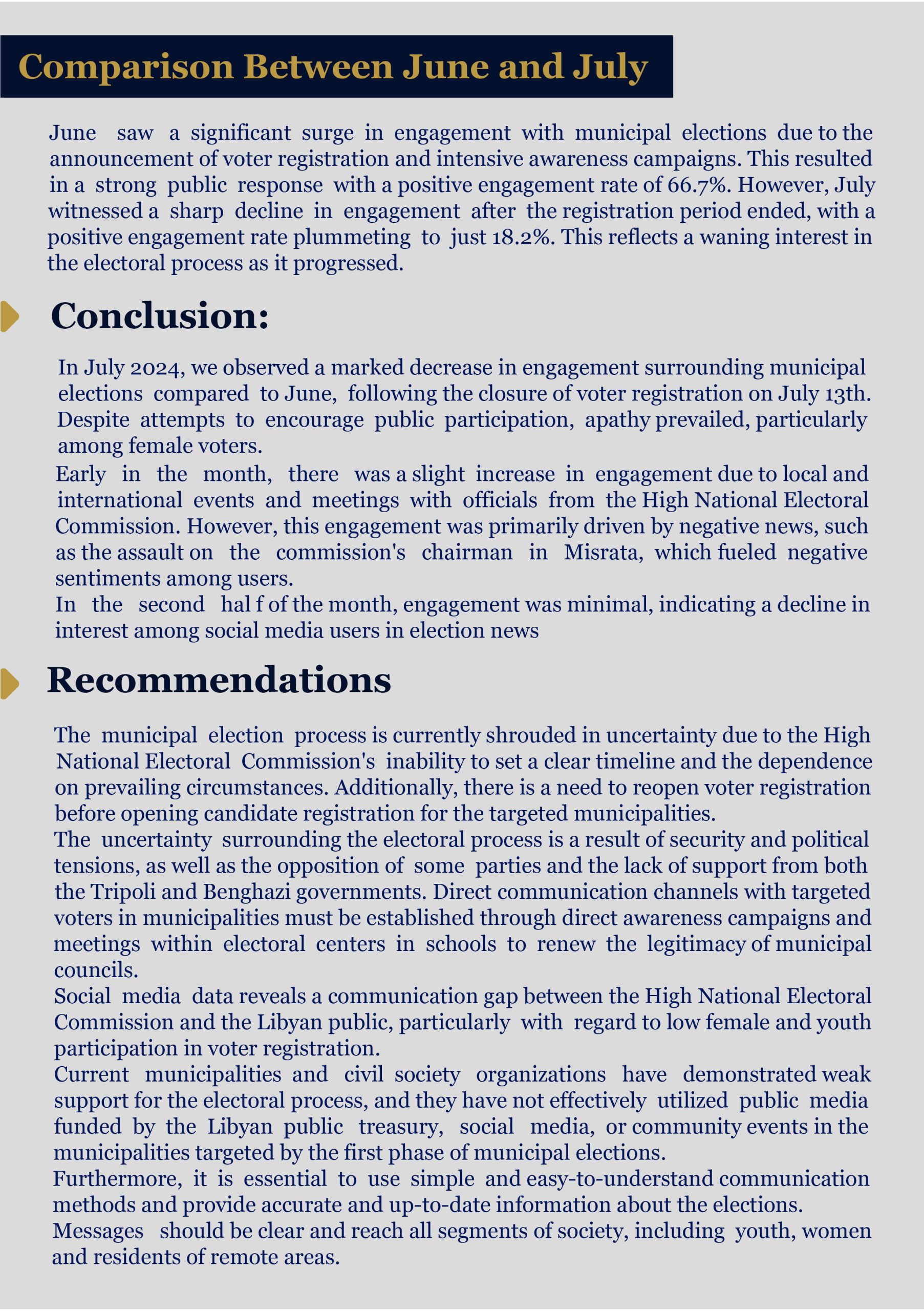
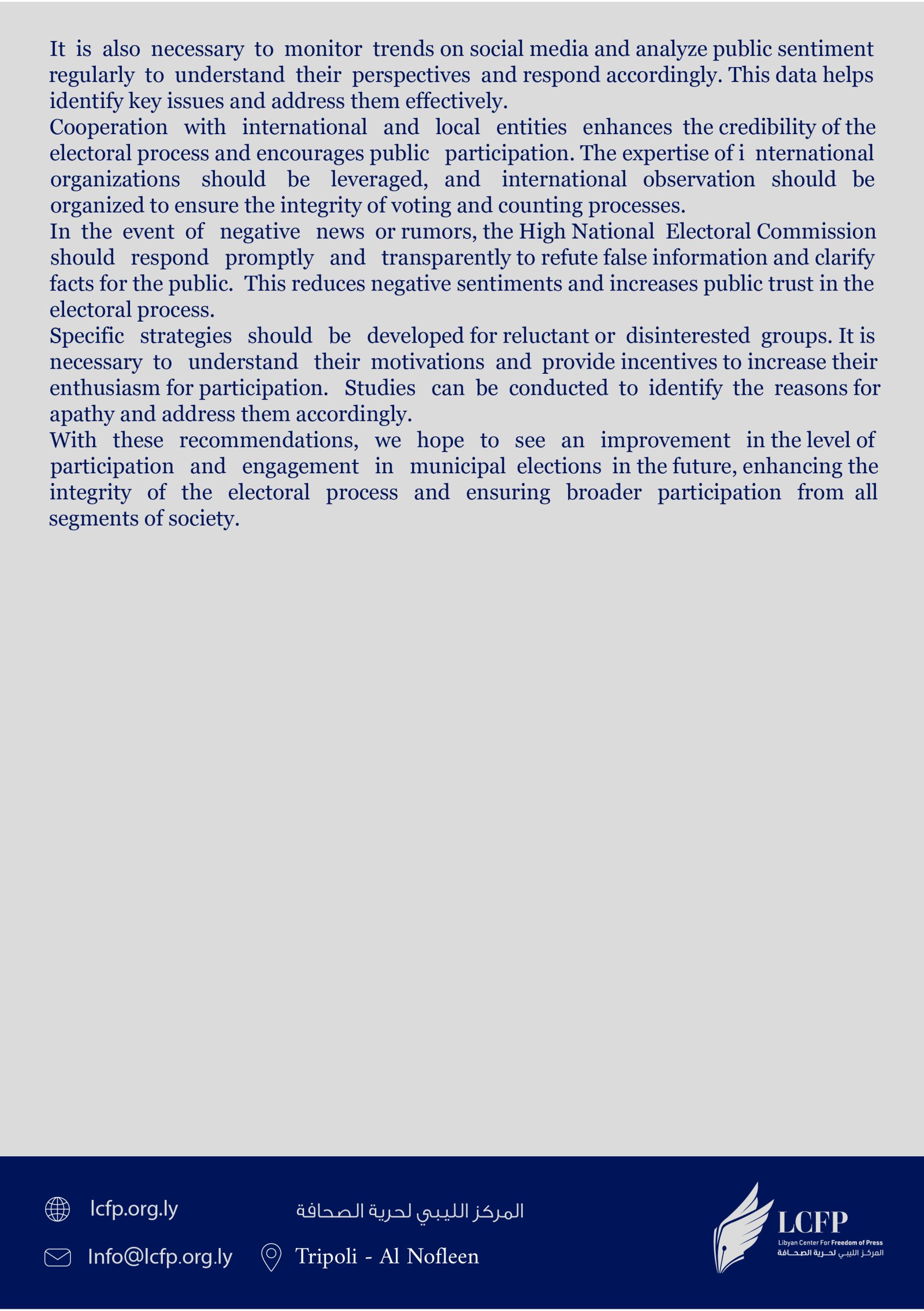







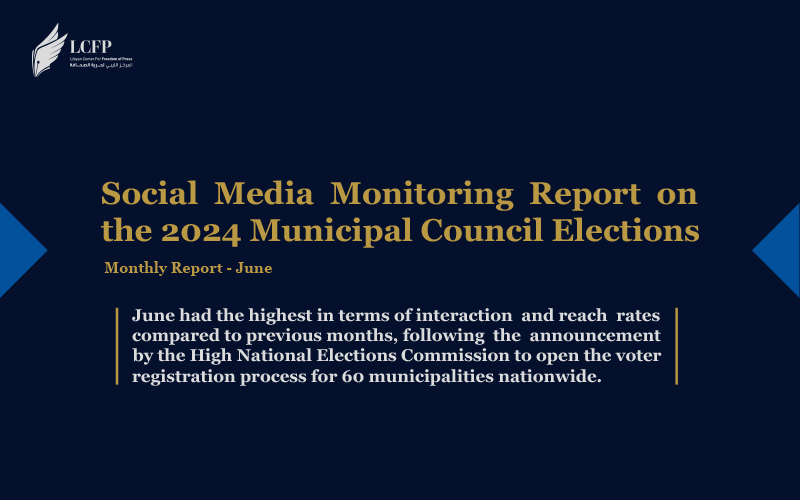
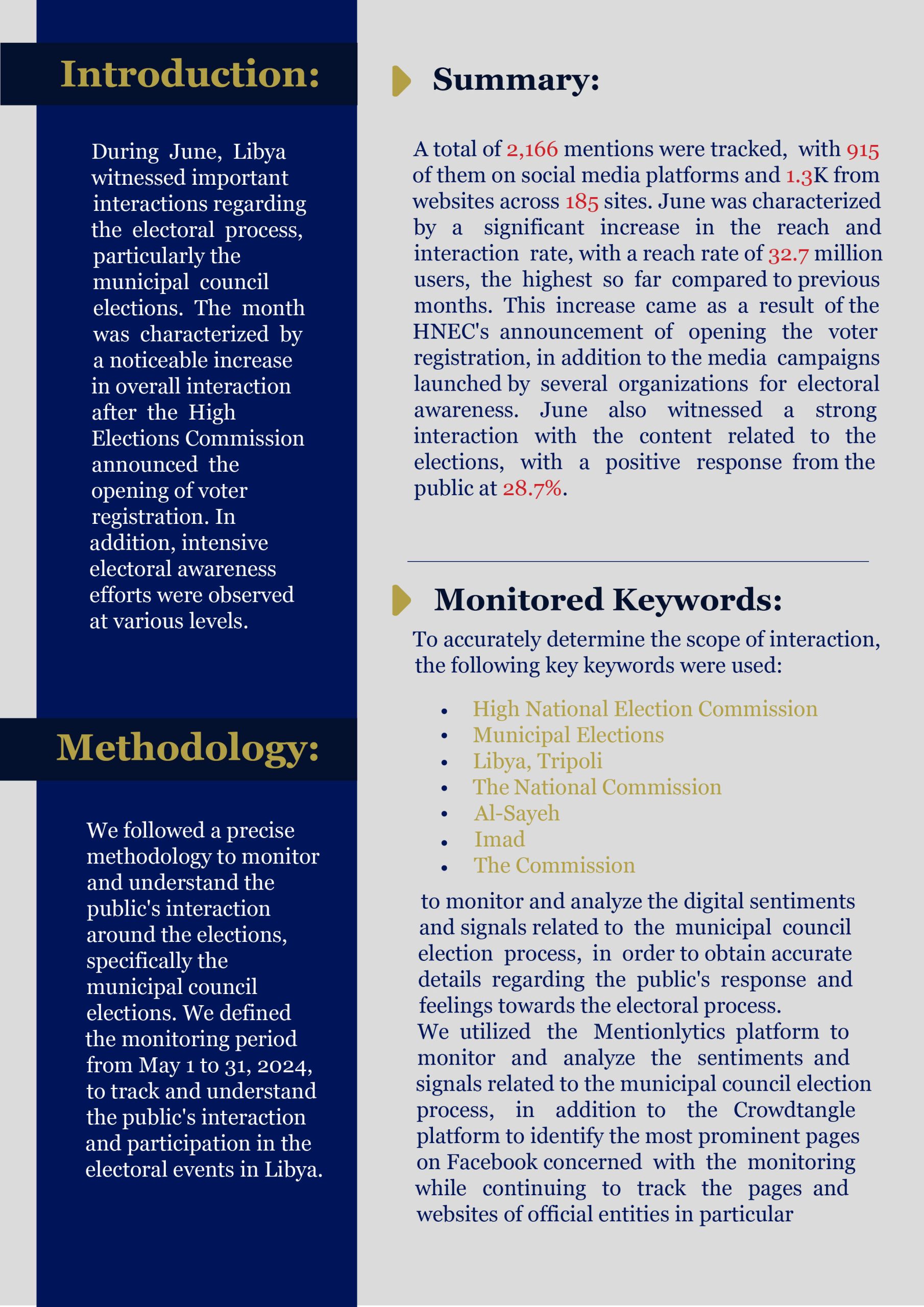
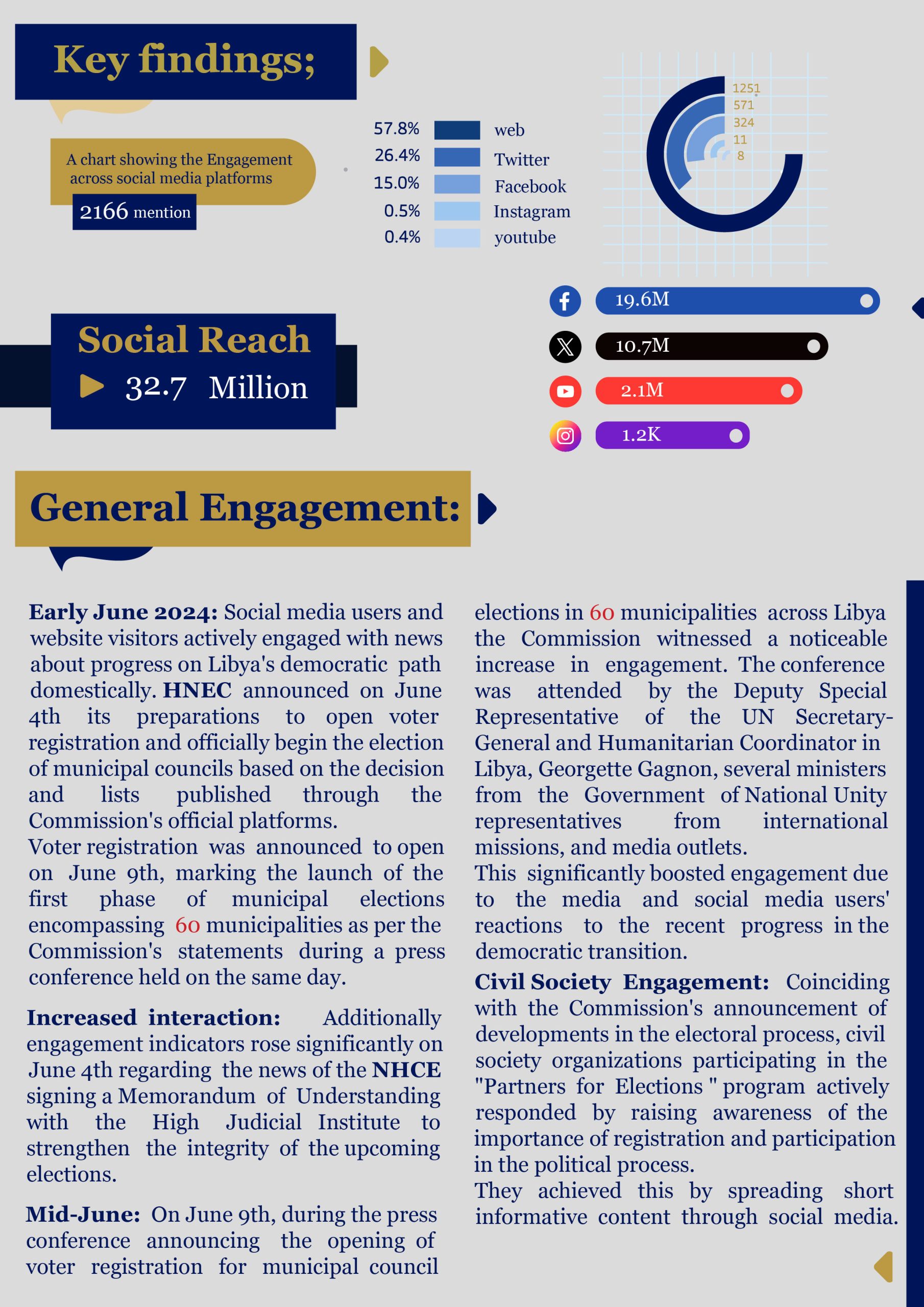
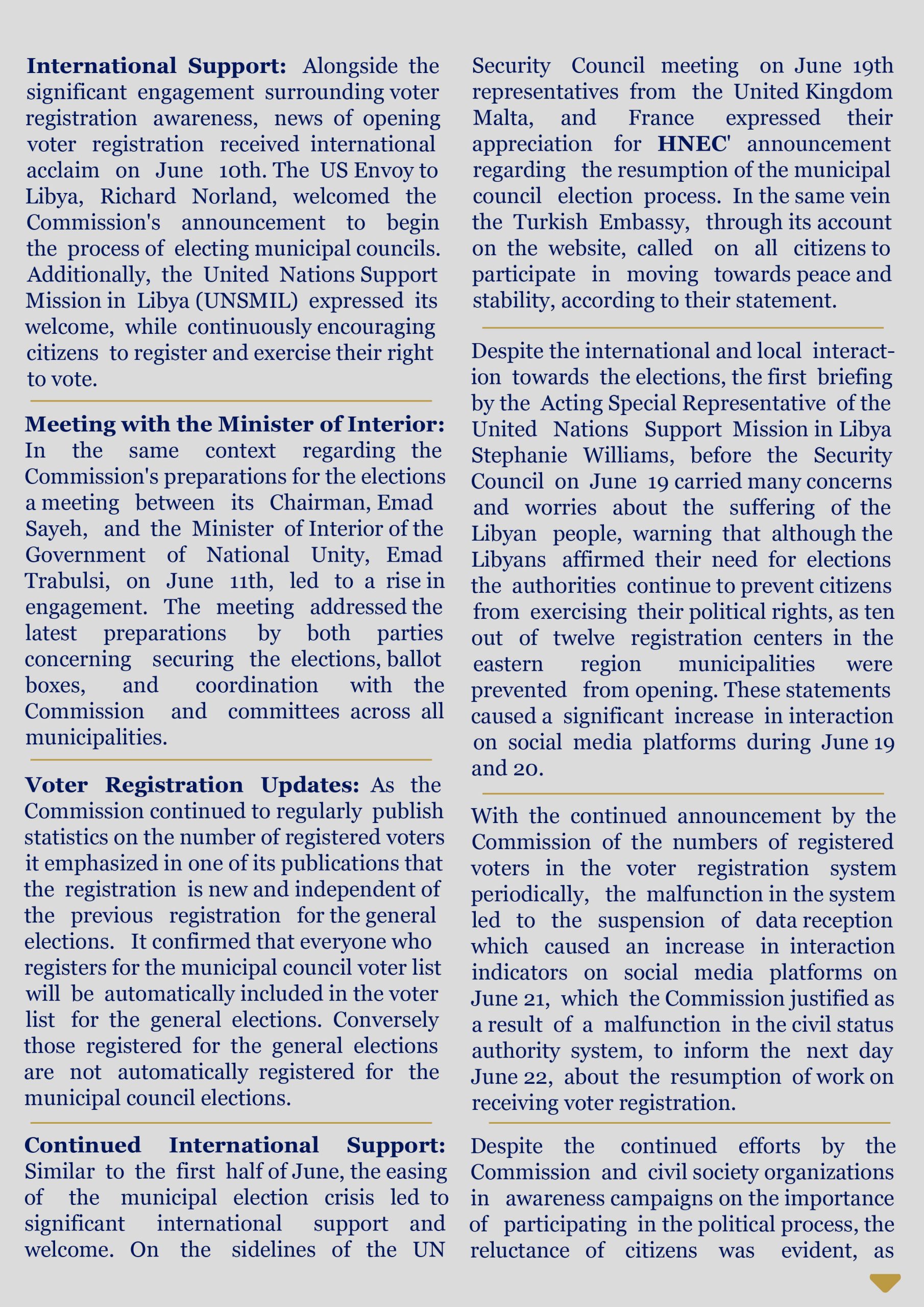
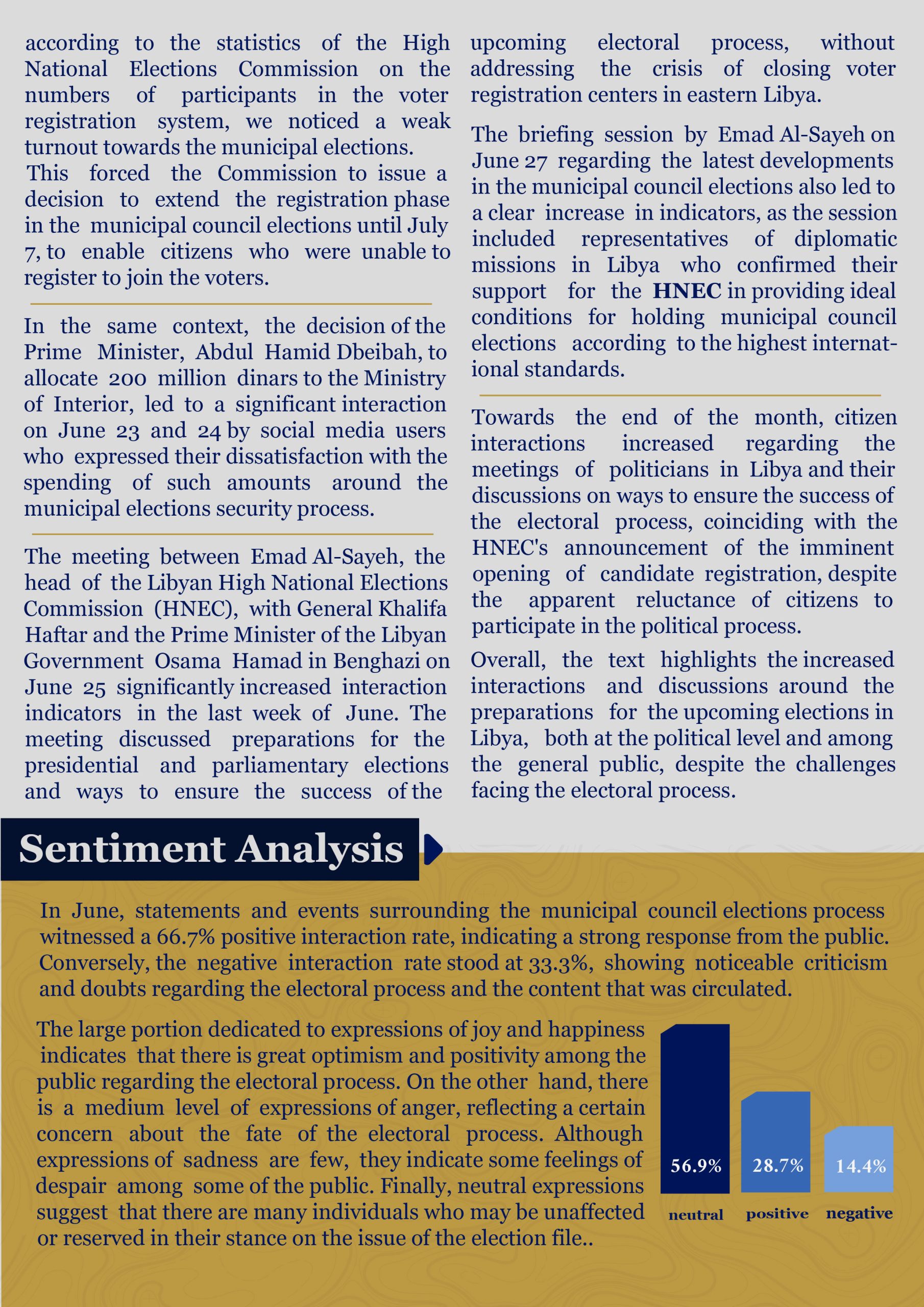
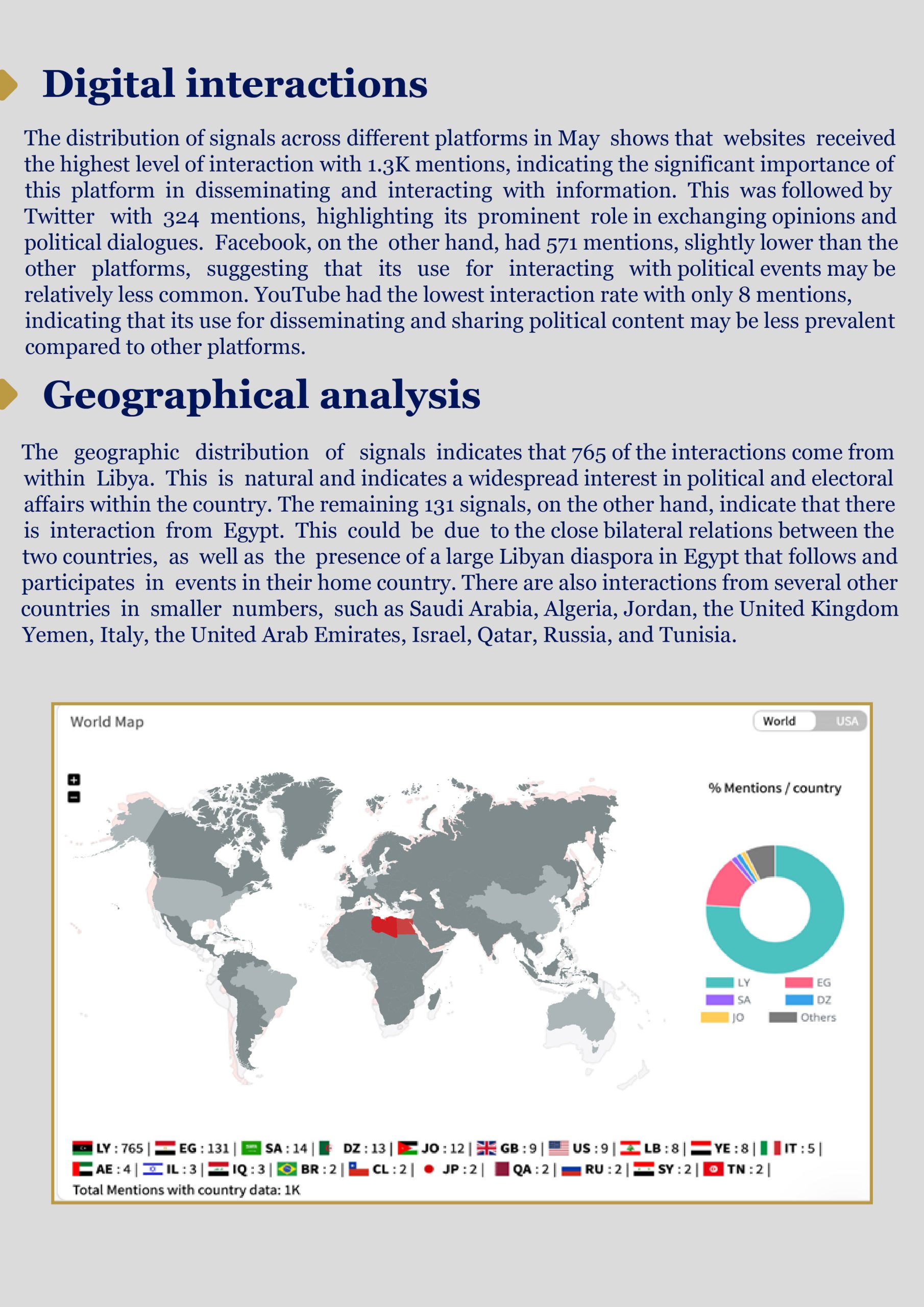
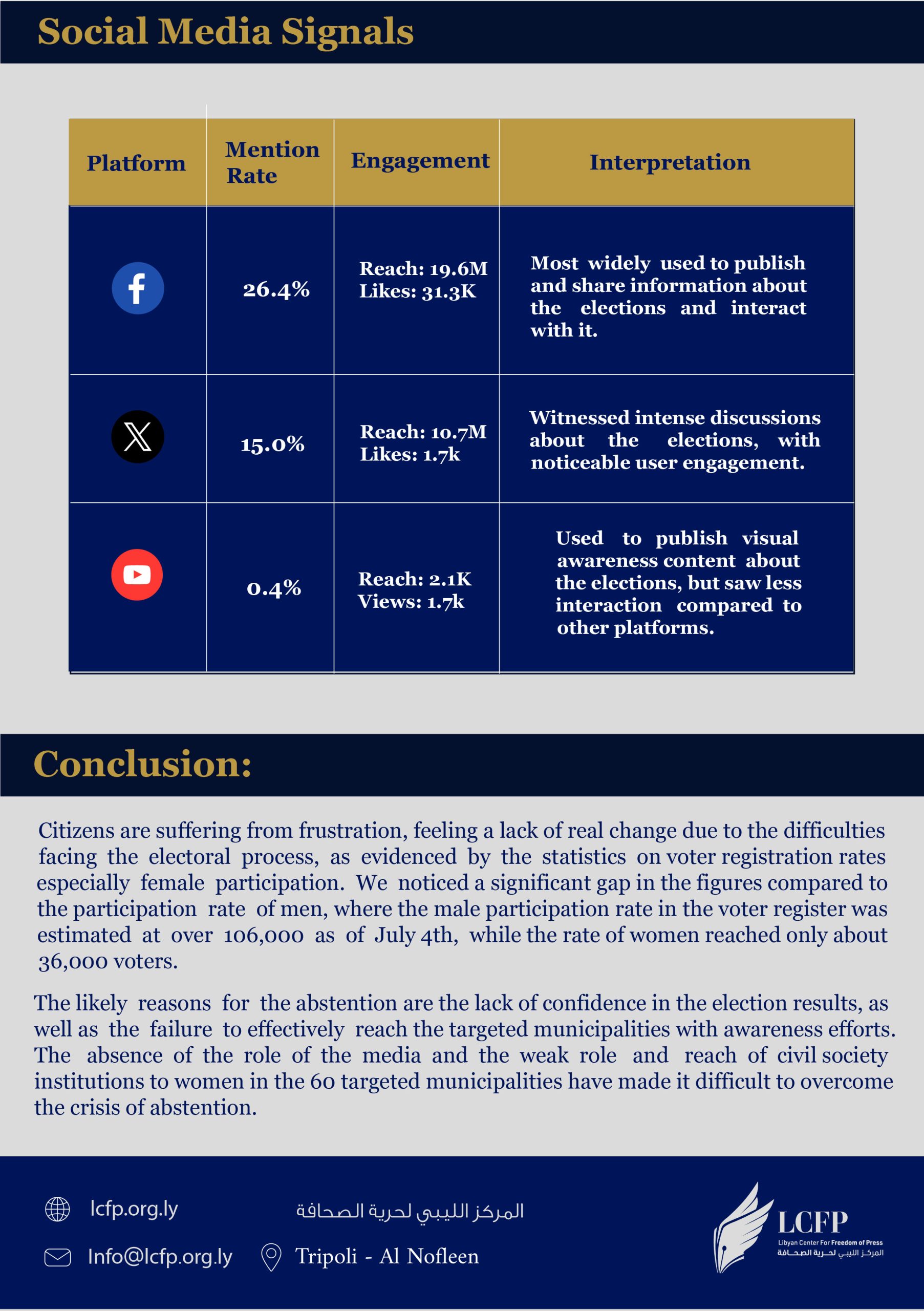
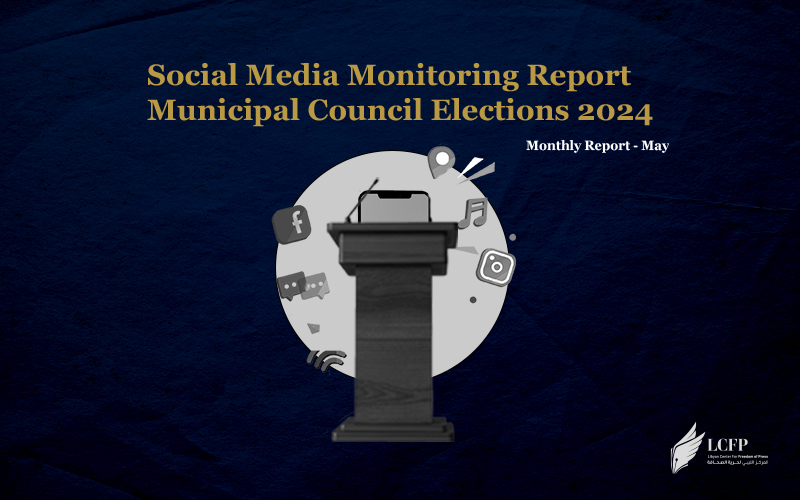
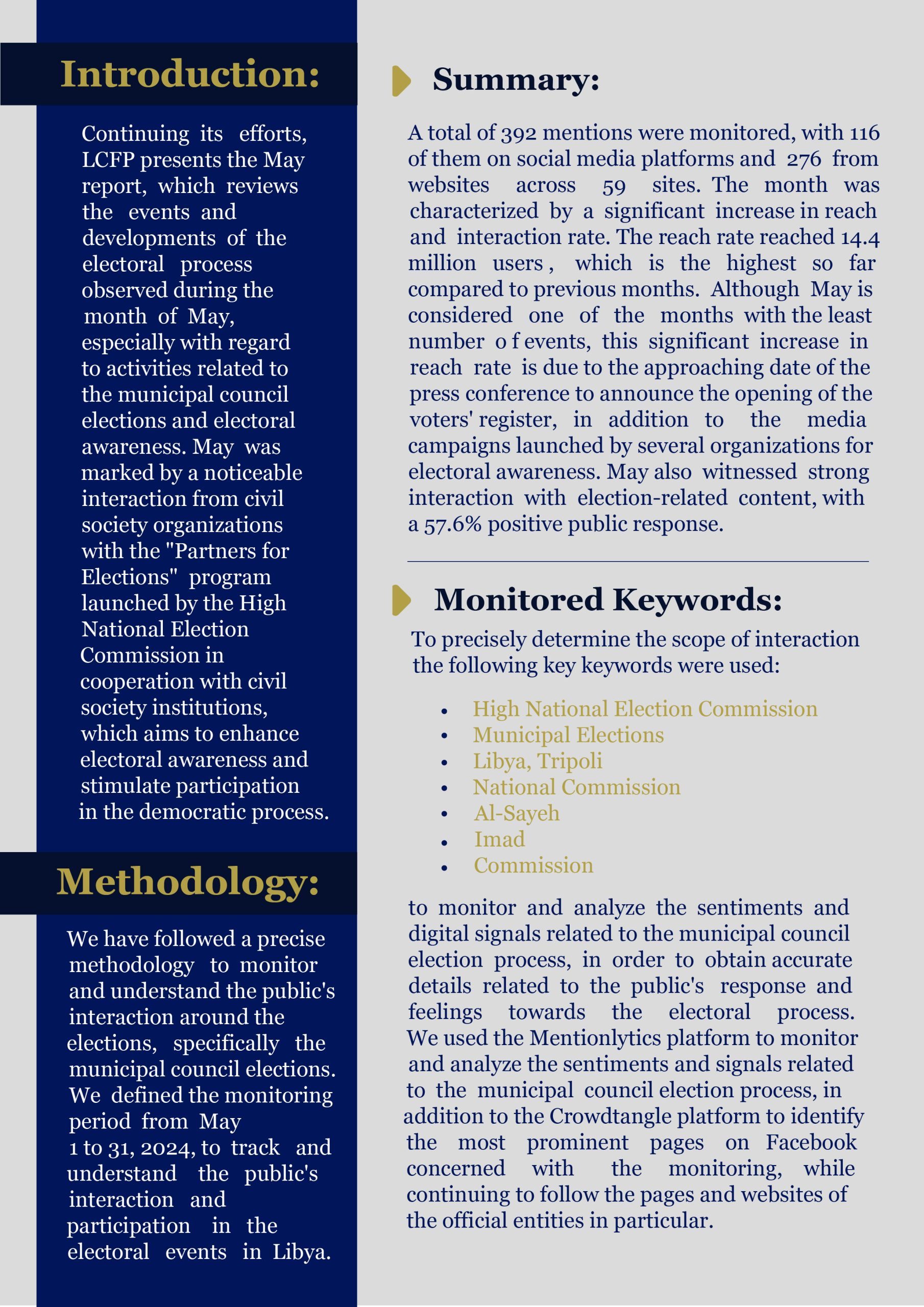

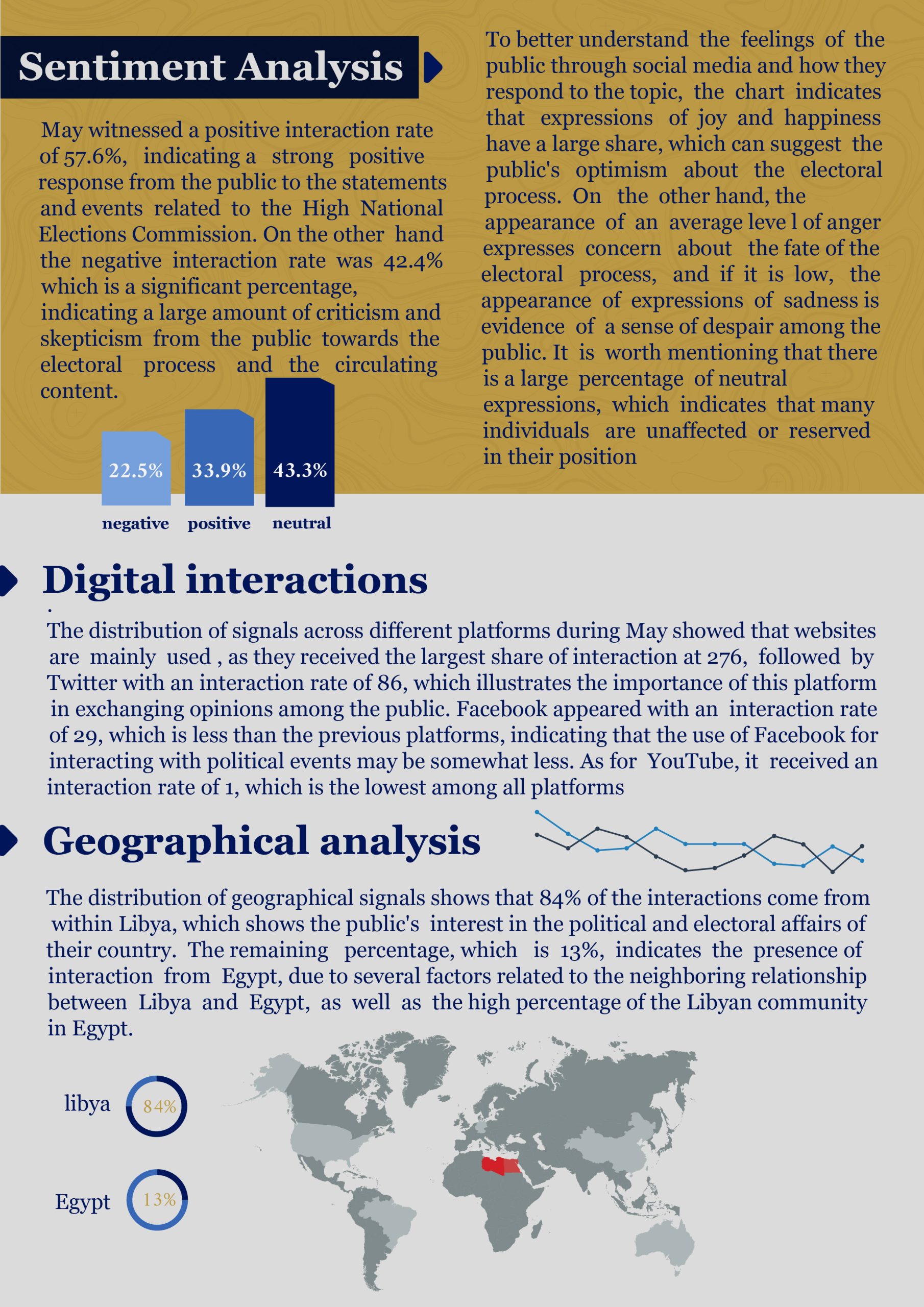

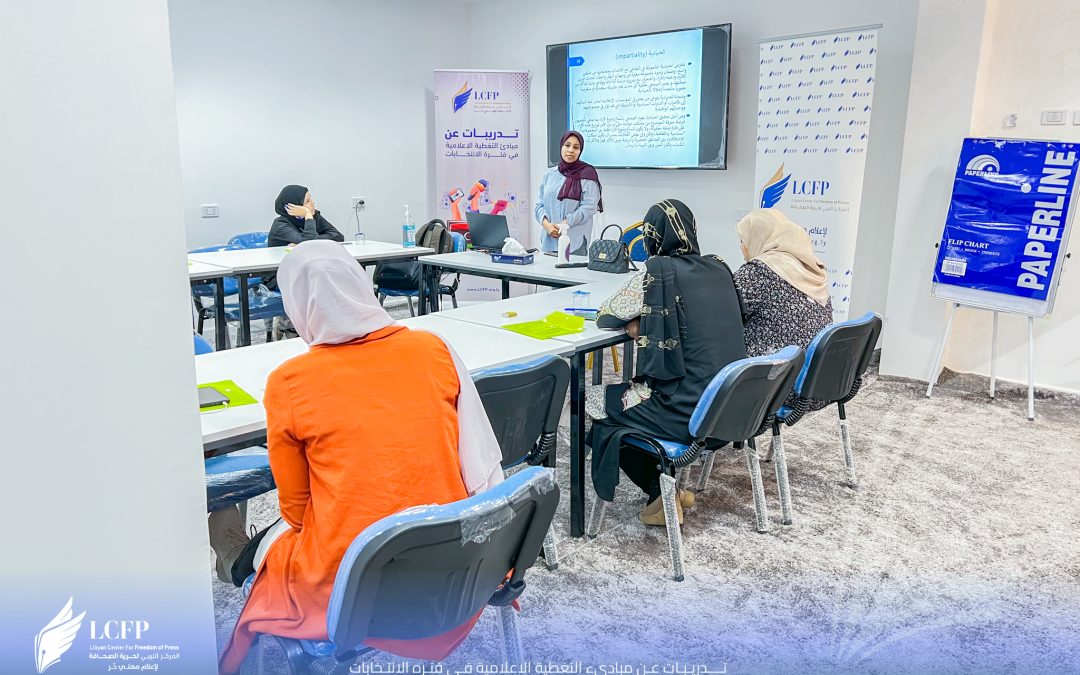
Sebha, June 13
Journalists and activists participated in a workshop on the guidelines for media coverage of the national general elections on Saturday and Sunday in Sebha, with the participation of 12 journalists, activists and bloggers working in many media outlets
The workshop focused on how to collect and analyze information from electoral constituencies and polling stations. It also shed light on the role of journalist in monitoring and covering all aspects of the electoral process. The workshop was an opportunity to do simulations of drafting news reports related to the coverage of aspects of electoral campaigns and the polling day
The workshop also tackled the basic roles of media in the context of elections, how to prepare for press interviews, and how to conduct balanced coverage of all actors in the electoral process. Executive regulations and electoral laws related to the presidential and legislative elections were introduced to journalists in the workshop
Participants stressed the need to intensify awareness-raising and training campaigns for local journalists, to ensure access to information on all aspects of the electoral process and to activate the role of the Media Centre of the High National Electoral Commission
It is noteworthy that the workshop comes within the initiative of media coverage of the national elections with the aim of training about 140 Libyan journalists on professional rules for media coverage during the national elections
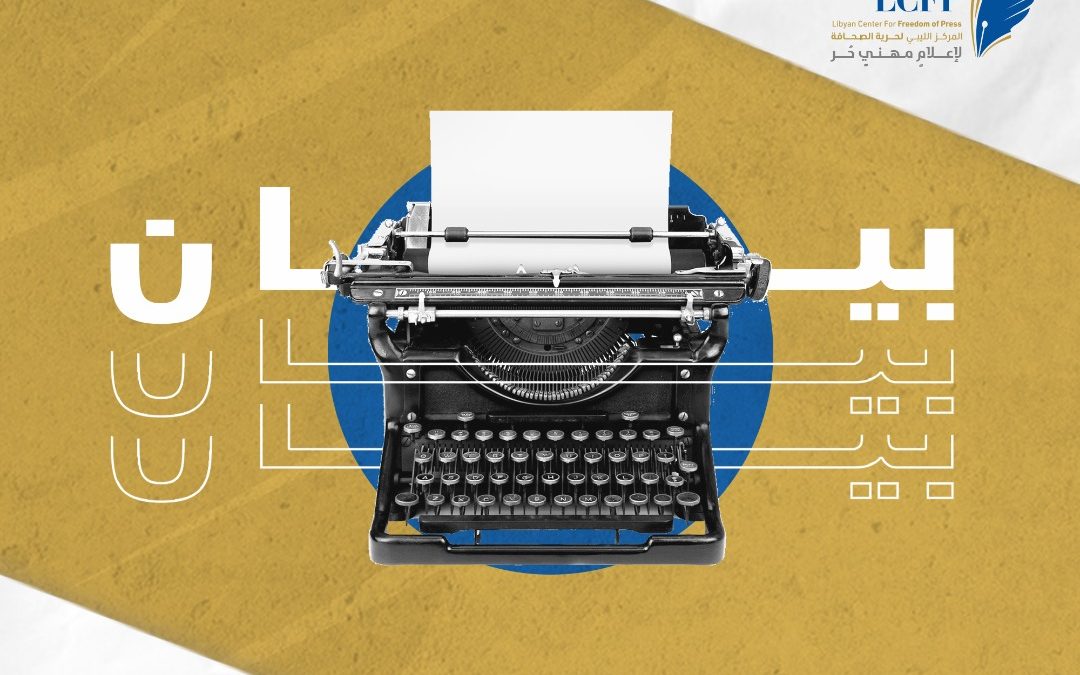
We, activists and members of civil society organisations working on ongoing human rights violations against migrants, asylum seekers and refugees in Libya, express our deep concern regarding the general climate of impunity and lack of accountability in the country. This volatile situation is further hampered by the shrinking of civic space, especially in light of through the criminalisation of activists and the crackdown on civil society organisations
Detention centres
In the last 6 years, since the Italy-Libya Memorandum of Understanding was signed, almost 185,000 people have been intercepted at sea by the so-called Libyan Coast Guard and brought back to detention centres in Libya. In these centres, which are at the hands of violent militias, they are at high risk of being subjected to mistreatments, forced labour, rape, torture and trafficking. A recent research carried out by Tilburg University concluded that at least 200,000 refugees (mostly from Eritrea) have been enslaved and trafficked in Libya between 2017-2021
The OHCHR Report Unsafe and Undignified: The forced expulsion of migrants from Libya, as well as the June 2022 report from the Independent Fact-Finding Mission on Libya, found evidence of war crimes and crimes against humanity in the specific case of migrants’ detention centres
Since 2021, some of the “official” detention facilities are being run by the Stabilisation Support Authority (SSA), which, according to Amnesty International, is a “a state-funded militia that operates with impunity” and who also intercepts migrants at sea
In its latest report dated 30 January 2023, the UN Fact-Finding Mission on Libya said that “arbitrary detention in Libya has become pervasive as a tool of political repression and control”, and that “Libyan authorities must take decisive steps to provide justice and redress to the vast number of victims suffering from long-standing violations of human rights and international humanitarian law”.
Externalisation policies, pullbacks and pushbacks
The EU and its Member States continue to further develop externalisation policies and try to contain migration by all possible means. They do so by equipping and supporting the so-called “Libyan Coast Guard”, who intercepted and returned 24,684 people to Libya in 2022, and almost 3,046 so far in 2023. Evidence shows how some of these interceptions are facilitated by Frontex through aircrafts and drones
The International Organisation for Migration reports that in the whole year 2022, 525 people died and 848 went missing in the Central Mediterranean route. These numbers are likely to be much higher due to the complete absence of information regarding many shipwrecks taking place along this route. As reported by Alarm Phone, pushbacks by merchant vessels are also common The situation at land borders is also extremely worrying: according to official statistics reported by OHCHR, “in 2019 and 2020, at least 7,500 migrants have been expelled from Libya’s external land borders”, most of them Egyptians, Sudanese and Chadians. More recently, forced returns have increased to Niger, Sudan and Chad. Also, boat departures of Egyptians from the East of Libya are on the rise: in 2022, Egyptians were the second nationality of migrants arriving in Italy (after Tunisians), while in 2021, more than 26,500 Egyptians were stopped at the Libyan border. The situation of asylum seekers and refugees inside Libya who are registered with the UN Refugee Agency, UNHCR, and are also victims of arbitrary detention and deportation, is very concerning as well, as is the lack of a legislative framework for the protection of migrant workers in the country. Hundreds of migrants are expelled by Libyan forces to get starved or kidnapped by ransom gangs. In January 2023, 600 migrants detained in Al Kufra facility controlled by the Department for Combating Illegal Immigration (DCIM) were expelled by the Libyan Arab Armed Forces (LAAF). This number included Sudanese asylum seekers registered at the UNHCR. Many are believed to have died in the desert and most went missing
At the same time, the European Union is committed to further “strengthen capacity of Libya to prevent irregular departures”, as stated in the Action Plan on the Central Mediterranean, and to disburse EUR 45 million to Libya and Tunisia to strengthen border management, including supporting Maritime Rescue Coordination Centres (MRCC) and the “training academy for border guards in Libya”. The EU is also committed to “explore ways to improve process to disembark migrants in Libya”, as stated in the 12-point MOCADEM Action file on Libya
Libya is not a safe place for disembarkation for migrants, and despite the numerous acknowledgements of this fact by UN bodies and the Council of Europe, and the many denunciations of agreements, the EU remains silent. On 6 February 2023, Italy handed over the first of the five announced patrol vessels to the Libyan Coast Guard (under EUTF budget), in the presence of European Neighbourhood and Enlargement Commissioner Várhelyi.
It is clear that the way the EU and some EU Member States collaborate with Libyan authorities in the field of migration is further hindering the stabilisation process in Libya. It also fosters a cycle of violence linked to interception and detention which strengthens local militias and human traffickers who are making money out of the lives of migrants, asylum seekers and refugees
We, the undersigned organisations, ask that
The EU and its Member States:
List of signatories